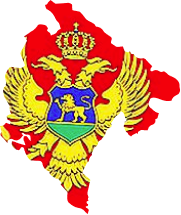AUTHOR
Nevena Čabrilo
Nevena Čabrilo, holder of master degree in biochemistry, is a senior advisor at the Bureau for Educational Services of Montenegro, with more than 25 years of professional experience in the field of education. She has broad experience in the development of the chemistry curriculum for primary school, biochemistry and chemistry curricula for adults, entrepreneurial education curriculum as elective subject in primary and secondary school as well as in the curriculum development for cross-curricular topics: digital competence framework, education for sustainable development and entrepreneurial learning for all education levels.
She is member in different international and national bodies for education and author of various publications such as Methodological guidance for the implementation of digital competence framework, Education for sustainable development, Entrepreneurial learning, Raising awareness on space planning – sustainable cities and rural settlements, Some aspects of modern curriculum, Teaching Science, Marzano’s taxonomy, Implementation of the reforming curricula, etc.
In addition, she is a teacher trainer having delivered teacher training programs in different educational fields. She is coordinator of a number of projects e.g., the EU-MNE funded project on the Integration of key competences for lifelong learning in Montenegrin education system, The 21st Century Schools educational program, Digital textbooks, Introducing the UN Sustainable Development Goals, Developing the entrepreneurial society in Western Balkans and Turkey, The knowledge exchange program for the Adriatic school system, Sharing experiences on the education reform processes in the SEE countries, and many other.

 MONTENEGRO
MONTENEGRO



